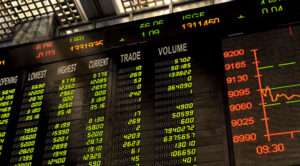Asian markets decline on Wall Street’s meltdown, while oil prices plummet.
(AFP) – HONG KONG Concerns about increasing US interest rates, soaring inflation, and the impact of China’s lengthy COVID lockdowns contributed to a selloff in Asian stocks and a decline in oil prices on Tuesday.
The global financial markets have been volatile this year, with Wall Street suffering another collapse on Monday, when the tech-heavy Nasdaq fell more than 4% and the S&P 500 fell below 4,000 points for the first time since March 2021.
Steep falls in China’s April exports as a result of Beijing’s steadfast commitment to a zero-COVID policy, which has driven millions of people indoors, and volatility in crude as a result of Russia’s war in Ukraine has also accelerated the bloodletting.
Peter Esho, co-founder of Wealthy, an investment property platform, stated, “We typically don’t pay too much attention to short-term market fluctuations, but there are signs that we may be on the verge of a huge event.”
In the end, we believe that every time the US Federal Reserve wants to raise interest rates, the economy and GDP will collapse, sending us back to square one.
The US stock markets plunged late last week after the Federal Reserve hiked interest rates by a half-percentage point and signalled more aggressive rises were forthcoming to combat decades-high inflation.
Lockdowns in dozens of Chinese towns, from the manufacturing powerhouses of Shenzhen and Shanghai to the breadbasket of Jilin, have caused havoc on supply chains over the past several months, exacerbating global inflationary pressures.
On Monday, Wall Street continued its decline in stocks on Monday, while Frankfurt, London, and Paris all lost more than two percent.
The Tokyo market began 0.7% lower on Tuesday, as Japanese investors fretted over monetary tightening in the United States. Seoul, Wellington, and Singapore, as well as Jakarta, the lone bright light over the last few days, also declined.
“The market is getting increasingly uninvestable,” stated Stephen Innes of SPI Asset Management.
As it is nearly impossible to build a positive argument for the larger market, “sell-everything mode” might be imminent.





